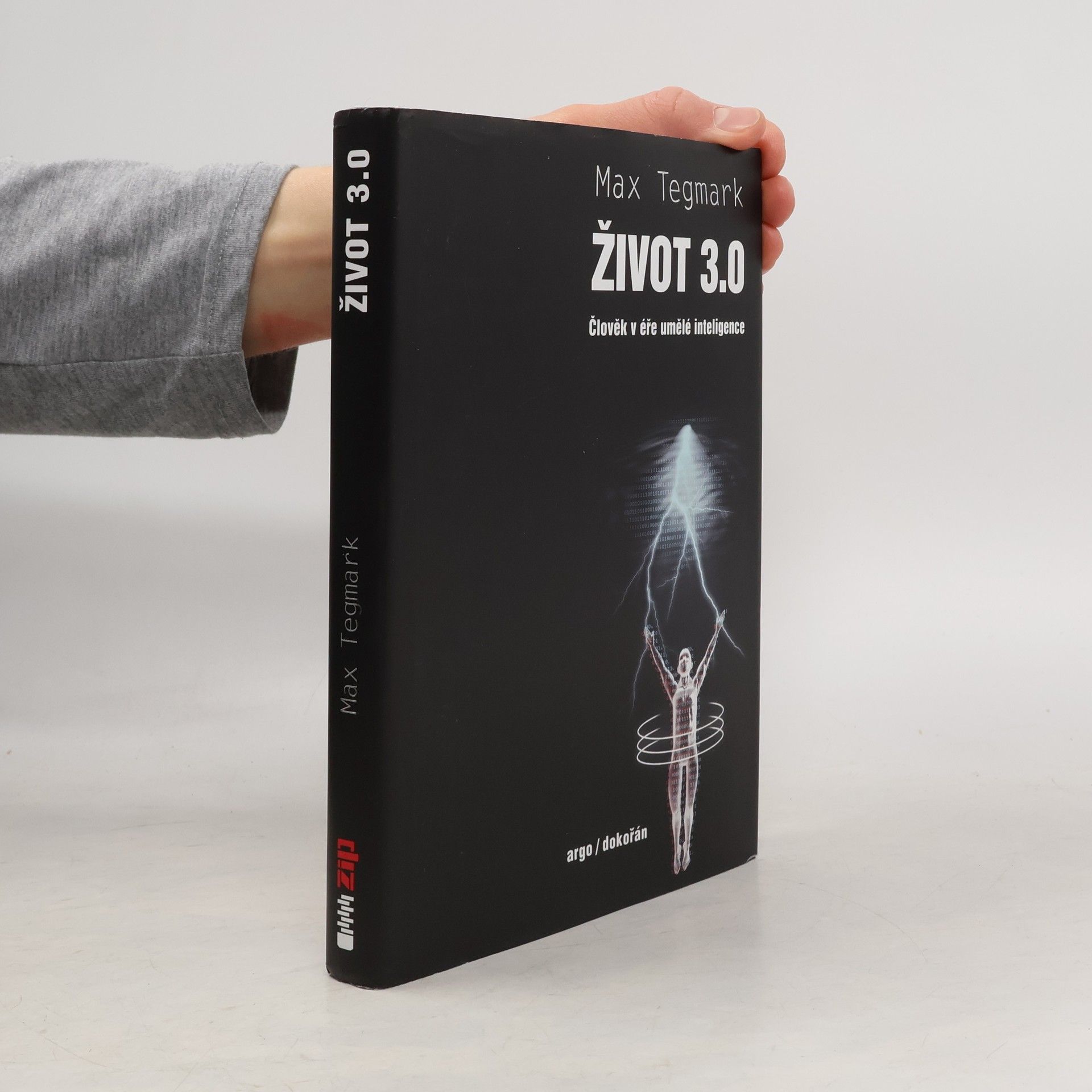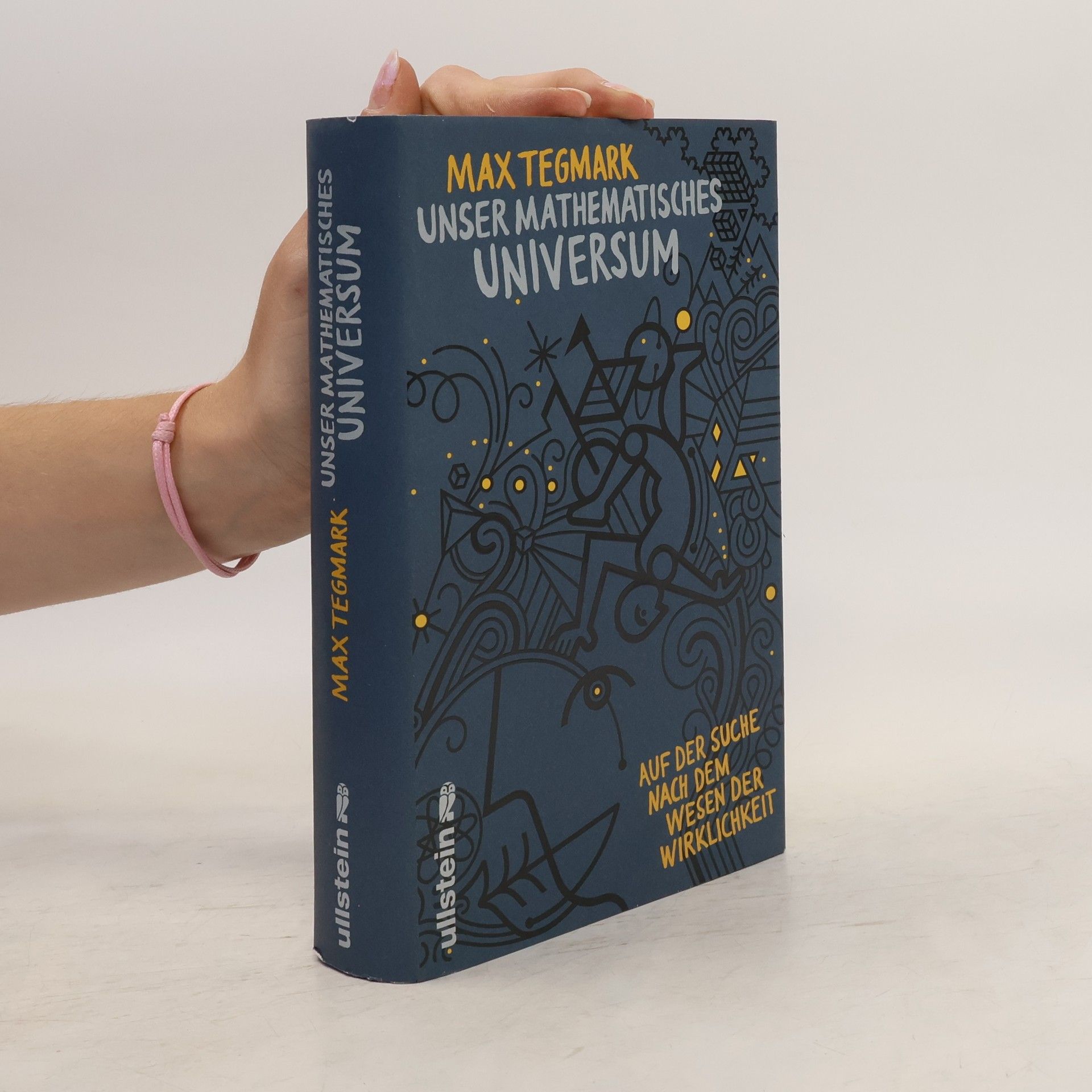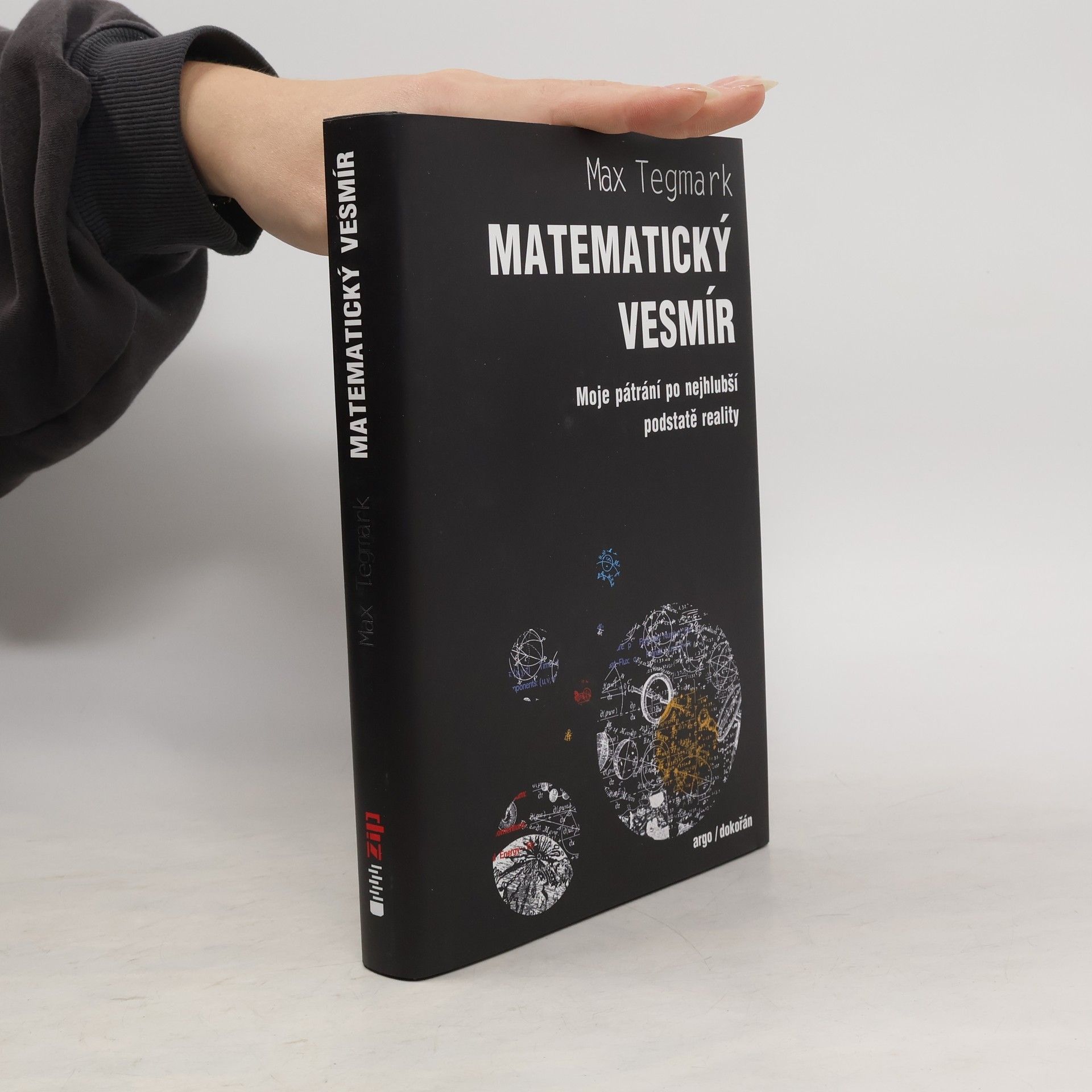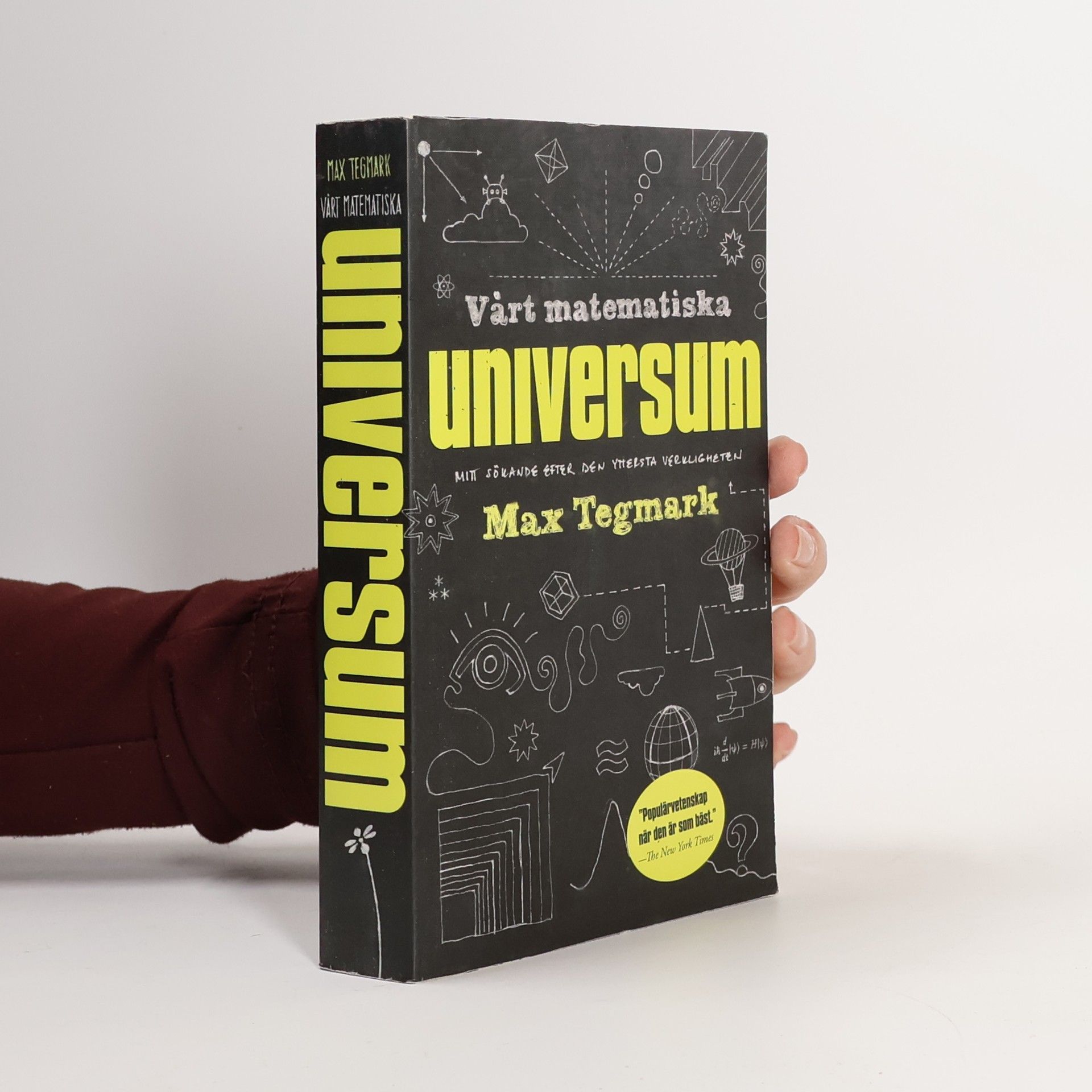Quel futur voulons-nous ? Un jour, l'Homme ne sera plus un mammifère. Il se libérera de son corps, ne fera qu'un avec l'ordinateur et, grâce à l'intelligence artificielle, accédera à l'immortalité. Pitch d'un film de science fiction de série B ou prédiction d'un gourou illuminé ? C'est en fait le rêve poursuivi par des chercheurs en intelligence artificielle à travers le monde et dans la Silicon Valley en particulier. Cette utopie transhumaniste, certains pensent qu'elle deviendra réalité dans le courant de ce siècle. Que se passera-t-il si ces recherches aboutissent ? Ne sommes-nous pas en train de fabriquer ce qui fera notre perte ? Comment éviter que les machines prennent le dessus ? Max Tegmark révèle dans ce livre les recherches en cours et explore les chemins qui nous mèneront vers une nouvelle ère, celle d'une planète 3 0 où l'homme cohabitera avec des machines intelligentes.
Max Tegmark Livres



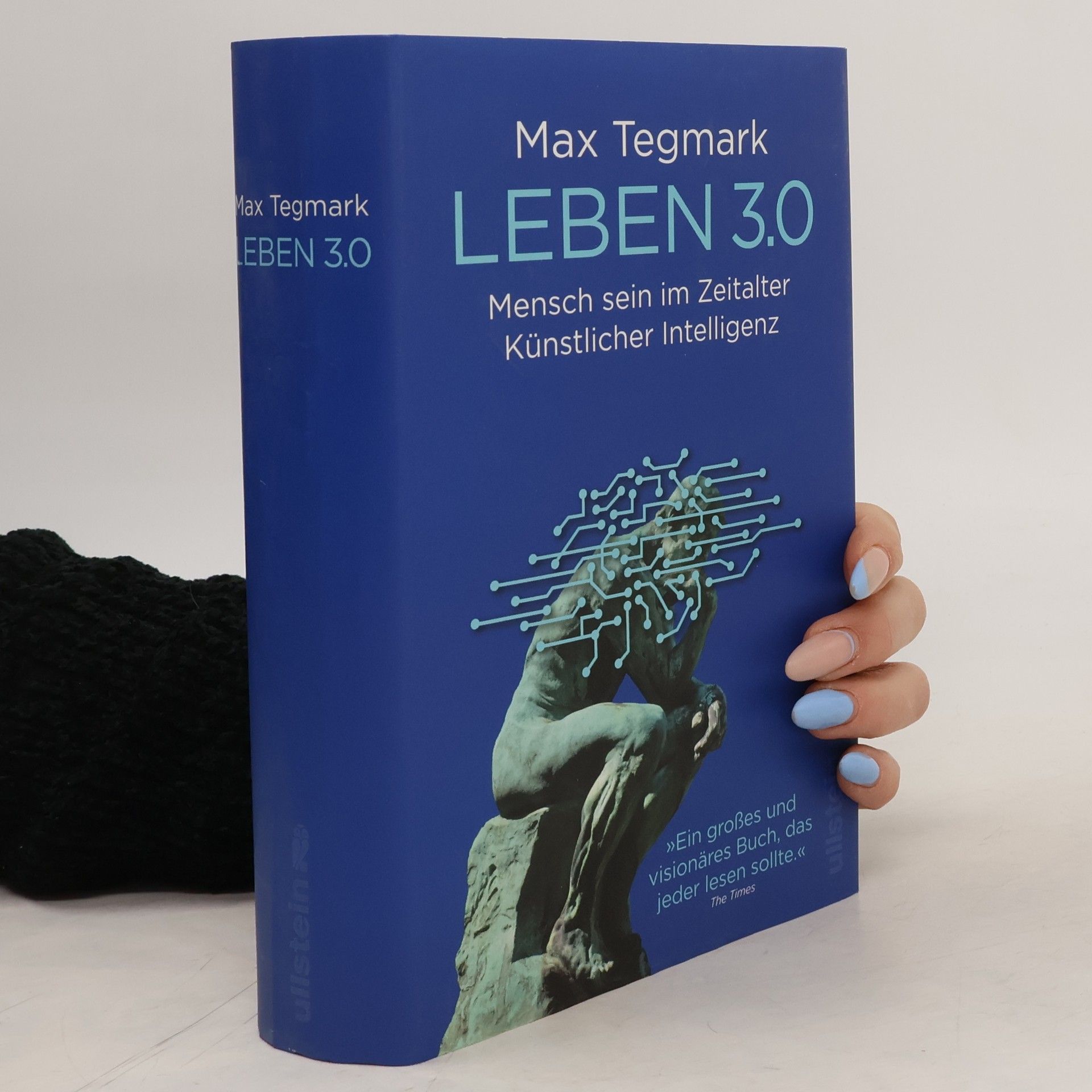
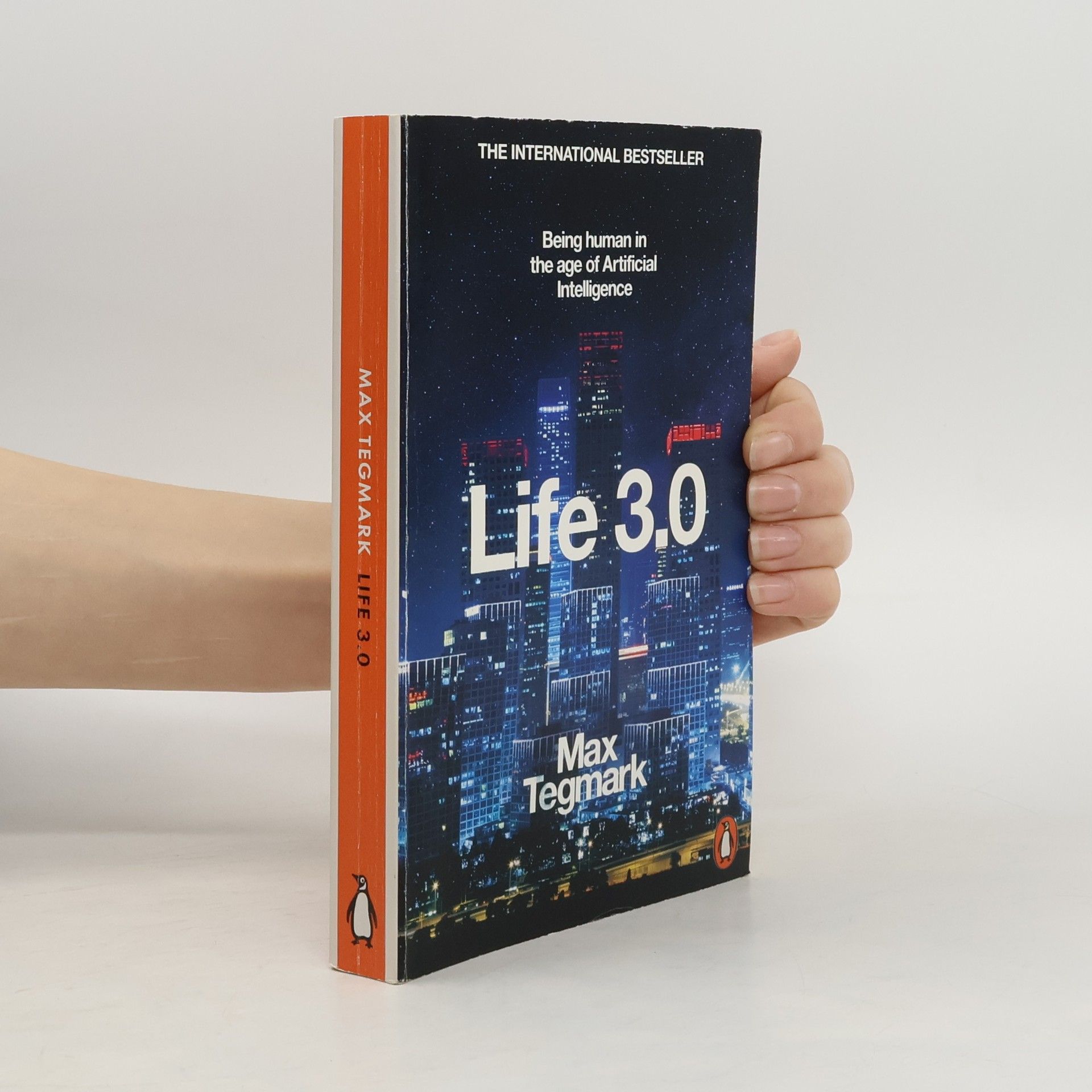


Our mathematical universe : my quest for the ultimate nature of reality
- 432pages
- 16 heures de lecture
"Max Tegmark leads us on an astonishing journey through past, present, and future, and through the physics, astronomy and mathematics that are the foundation of his work, most particularly his hypothesis that our physical reality is a mathematical structure and his theory of the ultimate multiverse. In a dazzling combination of both popular and ground-breaking science, he not only helps us grasp his often mind-boggling theories (his website gives a flavor of how they might boggle the mind), but he also shares with us some of the often surprising triumphs and disappointments that have shaped his life as a scientist. Fascinating from first to last--here is a book for the full science-reading spectrum"--
Life 3.0 : being human in the age of artificial intelligence
- 364pages
- 13 heures de lecture
We stand at the beginning of a new era. What was once science fiction is fast becoming reality, as AI transforms war, crime, justice, jobs and society-and, even, our very sense of what it means to be human. More than any other technology, AI has the potential to revolutionize our collective future - and there's nobody better situated to explore that future than Max Tegmark, an MIT professor and co-founder of the Future of Life Institute, whose work has helped mainstream research on how to keep AI beneficial. In this deeply researched and vitally important new book, Tegmark takes us to the heart of thinking about AI and the human condition, bringing us face to face with the essential questions of our time. What sort of future do we want? Life 3.0gives us the tools to join what may be the most important conversation of our time.
Künstliche Intelligenz ist unsere unausweichliche Zukunft. Wird sie uns ins Verderben stürzen oder zur Weiterentwicklung des Homo sapiens beitragen? Am Massachusetts Institute of Technology, einem führenden technologischen Think Tank, arbeitet Professor Max Tegmark mit den besten Entwicklern künstlicher Intelligenz zusammen, die ihm exklusive Einblicke in ihre Labors gewähren. Die daraus gewonnenen Erkenntnisse sind sowohl atemberaubend als auch verstörend. Neigt sich die Ära der Menschen dem Ende zu? Tegmark zeigt anhand neuester Forschung, was die Menschheit erwartet. Mögliche Szenarien sind: - Eroberer: Künstliche Intelligenz übernimmt die Macht und beseitigt die Menschheit auf unvorstellbare Weise. - Der versklavte Gott: Menschen nutzen eine superintelligente KI zur Herstellung von Hochtechnologien. - Umkehr: Der technologische Fortschritt wird radikal gestoppt, und wir kehren zu einer prä-technologischen Gesellschaft zurück. - Selbstzerstörung: Superintelligenz wird nicht erreicht, weil die Menschheit sich selbst vernichtet. - Egalitäres Utopia: Es gibt weder Superintelligenz noch Besitz, und Menschen sowie kybernetische Organismen leben friedlich zusammen. Tegmark bietet fundierte Zukunftsszenarien, die auf seinen exklusiven Einblicken in die aktuelle Forschung zur künstlichen Intelligenz basieren.
Život 3.0 – Člověk v éře umělé inteligence
- 296pages
- 11 heures de lecture
Co se bude dít, až se nám podaří vytvořit umělou inteligenci (AI), která se svou silou vyrovná lidské? Max Tegmark nepochybuje, že k tomu jednou dojde, neboť už současný vývoj soustavně boří hranice, jež byly dříve považovány za nepřekonatelné. Autor považuje za prakticky jisté, že začne docházet k prudkému a nekontrolovatelnému růstu kapacity AI, který se záhy ocitne mimo naši představivost. Dojde totiž ke třetí fázi vývoje života, který si kromě softwaru začne navrhovat i svůj hardware. Jaká může být v nové situaci role člověka? Pokud lidé ovládají tygry nikoli proto, že jsou silnější, ale proto, že jsou inteligentnější, co je čeká tváří v tvář entitě s řádově vyšší kognitivní kapacitou? Mohou vymřít, v lepším případě se stát jakýmisi domácími mazlíčky v zoo spravované superinteligencí. Nebo snad mají ještě jinou šanci?
Život 3.0
- 296pages
- 11 heures de lecture
Kniha švédskoamerického kosmologa Maxe Tegmarka je věnovaná umělé inteligenci a jejímu dopadu na lidskou civilizaci. Autor popisuje možnost vzniku nové – technologické – formy života, takzvaného života 3.0, který má být schopen vylepšovat sám sebe. Tegmark erudovaně vysvětluje mechanismy učení a samostatného uvažování této umělé inteligence, hluboké a překotné změny, jichž jsme již nyní svědky. Neméně zásadní místo v knize mají předpovědi vlivu na lidstvo, včetně etického rozměru lidství. Uvažuje nad celou řadou možných variant, v závislosti na místu ve společnosti, jež tato inteligence zaujme, a schopnostech, jichž dosáhne. Nabízí také sociologický a ekonomický pohled a dochází až k filozofickým otázkám existence a ptá se, jak lze vůbec definovat vědomí. Jakožto kosmolog autor nezůstává při zemi, dotýká se i klíčové role umělé inteligence při objevování a kolonizaci vesmíru. Max Texmark se zevrubně věnuje jedné z nejpalčivějších otázek lidstva a zdaleka se nevyhýbá optimistickému scénáři.
Život 3.0 : člověk v éře umělé inteligence
- 296pages
- 11 heures de lecture
Co se bude dít, až se nám podaří vytvořit umělou inteligenci (AI), která se svou silou vyrovná lidské? Max Tegmark nepochybuje, že k tomu jednou dojde, neboť už současný vývoj soustavně boří hranice, jež byly dříve považovány za nepřekonatelné. Autor považuje za prakticky jisté, že začne docházet k prudkému a nekontrolovatelnému růstu kapacity AI, který se záhy ocitne mimo naši představivost. Dojde totiž ke třetí fázi vývoje života, který si kromě softwaru začne navrhovat i svůj hardware. Jaká může být v nové situaci role člověka? Pokud lidé ovládají tygry nikoli proto, že jsou silnější, ale proto, že jsou inteligentnější, co je čeká tváří v tvář entitě s řádově vyšší kognitivní kapacitou? Mohou vymřít, v lepším případě se stát jakýmisi domácími mazlíčky v zoo spravované superinteligencí. Nebo snad mají ještě jinou šanci?
„Max Tegmark, Prophet der Parallelwelten, flirtet mit der Unendlichkeit.“ ULF VON RAUCHHAUPT, FRANKFURTER ALLGEMEINE SONNTAGSZEITUNG WORUM GEHT ES? Max Tegmark entwickelt eine neue Theorie des Kosmos: Das Universum selbst ist reine Mathematik. In diesem Buch geht es um die physikalische Realität des Kosmos, um den Urknall und die „Zeit davor“ und um die Evolution des Weltalls. Welche Rollen spielen wir dabei – die Wesen, die klug genug sind, das alles verstehen zu wollen? Tegmark findet, dieses Terrain sollte nicht länger den Philosophen überlassen bleiben. Denn die Physiker von heute haben die besseren Antworten auf die ewigen Fragen. WAS IST BESONDERS? „Eine hinreißende Expedition, die jenseits des konventionellen Denkens nach der wahren Bedeutung von Realität sucht.“ BBC „Tegmark behandelt die großen Fragen der Kosmologie und der Teilchenphysik weitaus verständlicher als Stephen Hawking.“ THE TIMES WER LIEST? • Jeder, der das Universum verstehen will • Die Leser von Richard Dawkins und Markus Gabriel
Podtitul: Moje pátrání po nejhlubší podstatě reality. Již po staletí nejde největším světovým vědcům na rozum, že se celý svět, nesmírně spletitý a chaotický, dá s neuvěřitelnou přesností popsat pomocí lidského výtvoru, který je navíc poměrně jednoduchý a strohý. Tímto výtvorem je matematika a svůj údiv nad její účinností vyjadřovali i Galileo a Einstein. Mladý švédskoamerický kosmolog Max Tegmark, profesor fyziky na MIT a vášnivý milovník matematiky, však jde ještě o krok dál a tvrdí, že místo "vesmír je popisován matematikou", lze říci "svět je matematika". Aby svoje tvrzení doložil, zkoumá nejnovější výsledky pokročilých výzkumů mikrokosmu i makrokosmu, kvantovou teorii i astrofyziku. Pečlivě při tom odlišuje všeobecně přijímané výsledky fyzikálního mainstreamu, trochu odvážnější teorie a vyloženě spekulativní fantazie. Kniha si brzy po vydání zaslouženě získala pozornost řady vědců a vyvolala mnoho diskusí.
Fysiken är ett intellektuellt äventyr som syftar till att förstå universums mysterier. Det handlar om att se världen i sin förunderliga skönhet snarare än att göra den tråkig. Max Tegmark tar oss med på en fascinerande resa genom fysik, astronomi och matematik. En hypotes vi möter är att vår verklighet är en matematisk struktur, medan en annan föreslår oändligt många parallella universum och därmed oändligt många versioner av oss själva. Tegmark kombinerar populärvetenskap med banbrytande forskning och förklarar sina teorier på ett tillgängligt sätt. Han delar även med sig av sina överraskande framgångar och motgångar som format hans liv, från sin barndom i Stockholm till sin karriär som professor i USA. Boken har fått stort intresse och hyllats av framstående forskare och matematiker. Det Tegmark skriver påminner om den bästa science fiction, men verkligheten överträffar dikten. Max Tegmark, född 1967 i Stockholm, är professor i fysik vid MIT och har kallats världens smartaste svensk. Hans verk är en nödvändig läsning för alla som funderat på livets ursprung och universums gåtor.
